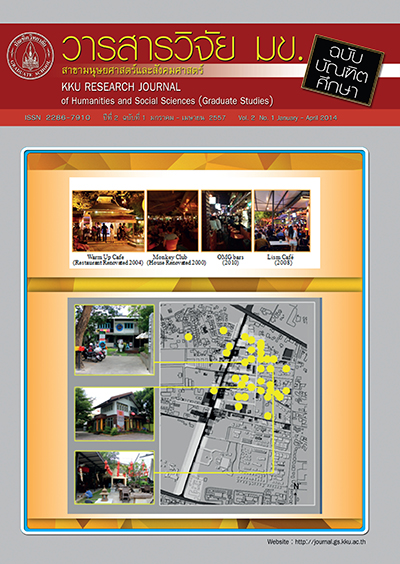A Critical Study of Clifford’s Evidentialist Position on The Ethics of Belief(การศึกษาเชิงวิเคราะห์หลักการการหาเหตุผลก่อนการเชื่อ ของนายคลิฟฟอร์ด)
Keywords:
Evidentialism(หลักฐานนิยม), Pragmatism(ปฏิบัตินิยม), Apperception(สติสัมปชัญญะ)Abstract
During W.K. Clifford’s era of the Victorian Crisis of Faith, Clifford noticed a decline in religious ethics and social morality, thus he intended to foster scientifically grounded ethics, which is universally applicablefor all humankind. His claiming, “It is wrong always, everywhere, and for anyone to believe anything on insufficient evidence” has challenged other thinkers to argue about this evidentialist theory. Here I will defend Clifford from a pragmatist, moralist and deontologist objections againstevidentialisttheory and elaborate the possibility of perfectly achieving Clifford’s evidentialist principle.
ในยุควิกตอเรียที่มีวิกฤตการณ์เกี่ยวกับความเสื่อมศรัทธาของผู้คนที่มีต่อศาสนาคริสต์ คลิฟฟอร์ดได้ มีความตั้งใจที่จะดำรงจริยธรรมในสังคมโดยใช้หลักพื้นฐานของวิทยาศาสตร์ที่ทุกคนสามารถเข้าถึงได้มาสร้าง ข้อประพฤติปฏิบัติทางจริยธรรมในความเชื่อโดยกล่าวไว้ว่า การเชื่อโดยไม่มีหลักฐานเพียงพอนั้นไม่ว่าจะที่ไหน และจะเป็นใครนั้นก็ถือว่าผิด คำกล่าวนี้ถูกถกเถียงอย่างกว้างขวางถึงความเป็นได้ของข้อประพฤติข้อนี้ และ ในที่นี้เองที่ผู้เขียนจะอธิบายถึงข้อโต้แย้งเหล่านั้นโดยปกป้องความคิดของคลิฟฟอรด




